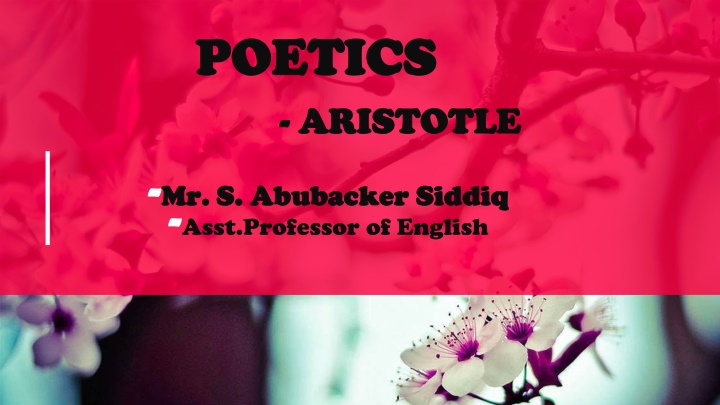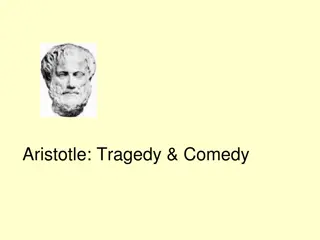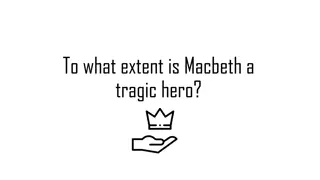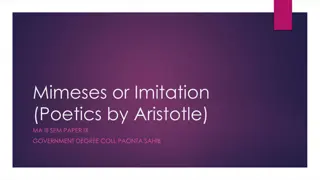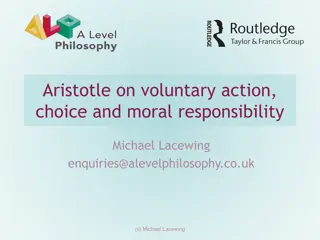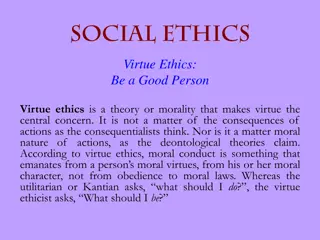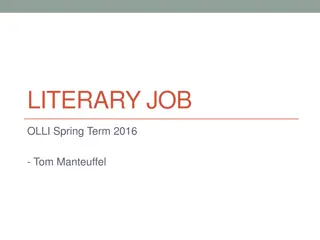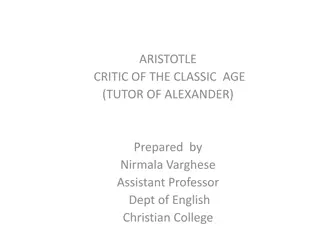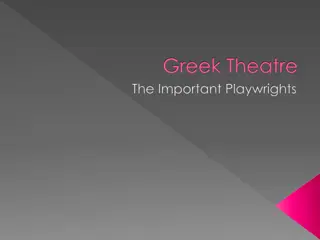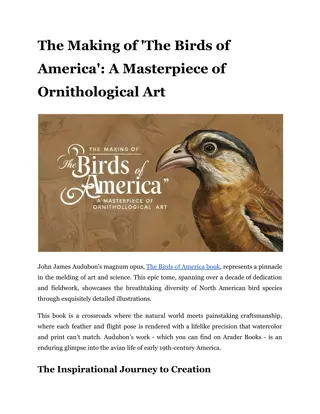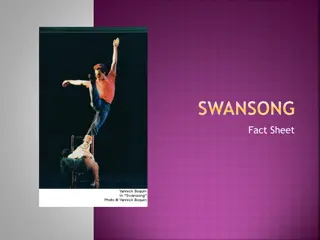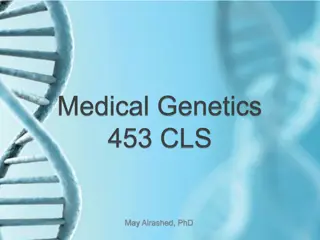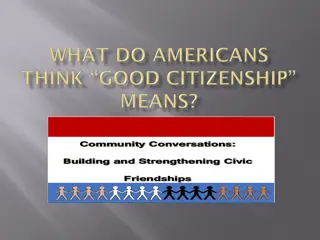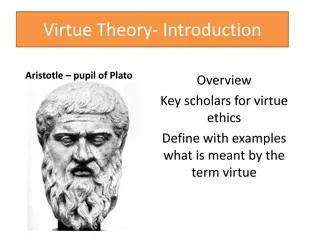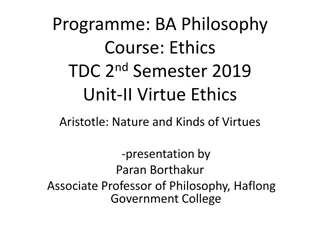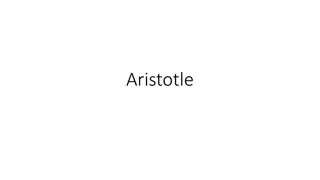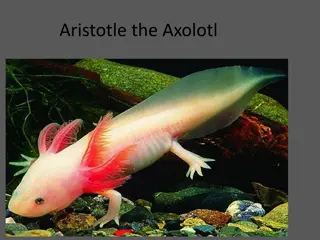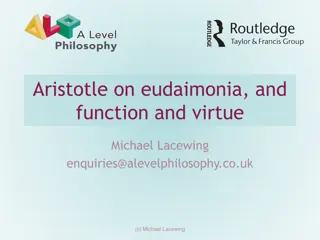Aristotle's Poetics: An Overview of the Masterpiece
Aristotle's "Poetics" is a seminal work that delves into the essence of poetry, particularly tragedy and comedy. Written around 335 B.C., this treatise challenges Plato's ideas on mimesis and offers insights into poetry's societal significance. Divided into six parts, it explores various elements of poetry, from imitation to poetic diction, and addresses critics' objections to this art form.
Download Presentation

Please find below an Image/Link to download the presentation.
The content on the website is provided AS IS for your information and personal use only. It may not be sold, licensed, or shared on other websites without obtaining consent from the author.If you encounter any issues during the download, it is possible that the publisher has removed the file from their server.
You are allowed to download the files provided on this website for personal or commercial use, subject to the condition that they are used lawfully. All files are the property of their respective owners.
The content on the website is provided AS IS for your information and personal use only. It may not be sold, licensed, or shared on other websites without obtaining consent from the author.
E N D
Presentation Transcript
POETICS POETICS - - ARISTOTLE ARISTOTLE -Mr. S. Mr. S. Abubacker Abubacker Siddiq -Asst.Professor of English Siddiq
Aristotle Aristotle Aristotle was born in the Macedonian town of Stagira in 384 B.C His father, Nicomachus, was a physician In 367, when Aristotle was seventeen, his uncle, Proxenus, sent him to Athens to study at Plato's Academy In 335, established Lyceum Aristotle was invited by King Philip as tutor to Alexander, then only thirteen or fourteen 2
His Major Works His Major Works Constitutions (158 including the Constitutions of Athens) Dialogues Organon, or The Instrument of Correct Thinking Rhetoric Logic Nicomachean Ethics Metaphysics Poetics 3
Aristotles Aristotle s Poetics Poetics : An Introduction : An Introduction Written in about 335 B.C., or 330 BCE A short treatise of twenty-six chapters and forty-five pages Neither exhaustive and comprehensive, nor yet coherent Reflects the true spirit of Aristotle s attempts to explain the anatomy of poetry and its value to the human society. Aristotle s Poetics was a conscious effort to challenge Plato s Republic Ideas on Mimesis 4
Poetics Poetics : Its Plan : Its Plan It is divisible into the following six parts: Chapters I V (5) contain introductory remarks on poetry, and its classification into different kinds, including tragedy and comedy. Imitation is said to be the basic principle common to all arts. Chapters VI XIX (14) are devoted to Tragedy, a definition is given, and its formative elements are discussed. 5
Poetics Poetics : Its Plan : Its Plan Chapters XX XXII (3) are devoted to a discussion of poetic diction Chapter XXIII (1) deals with Narrative Poetry and Tragedy 6
Poetics Poetics : Its Plan : Its Plan Chapters XXIV and XXVI (2) deal with the treatment of epic in brief and compared with tragedy in. Chapter XXV (1) examines the objections of critics against poetry. The objections are also answered. 7
Poetry Heroic Satiric Tragedy Comedy 8
Poetics Poetics : Value of Poetry : Value of Poetry Poetry is more philosophical and higher than history. Aim of art is to provide pleasure, artistic pleasure. Poetry, which is the highest form of imitative art, imitates Nature. An expression of the universal element in human life. An artist imitates, he gets pleasure in imitation, this faculty is inborn. A child imitates sound/ conduct. An artist is just a grown-up child. 9
Poetics Poetics : Distinction between Poetry and : Distinction between Poetry and History History History Particular persons, places and things Poetry No geographical limitations, truth of universal kind, permanent features and tendencies of human beings 10
Poetics Poetics : Distinction between Poetry and : Distinction between Poetry and History History History Deals with facts as dry as dust Poetry Deals with inner human action , universal through particular which is applicable to all times. Hamlet Chronicles 11
Poetics Poetics : Distinction between Poetry and : Distinction between Poetry and History History Poetry Poet works in accordance with law of probability or necessity , maintains close connection between one incident and another, cause and effect History Historian cannot invent facts in order to present what was happened 12
Poetics Poetics : Tragedy : Tragedy More than Comedy, Epic and Lyrical poetry, Aristotle says, Tragedy is the most representative of arts. For him, Tragedy was the grand type of all the arts. A tragedy is the imitation of a good action i.e. morally good. Dealing with men of higher type or superior men Serious actions of men 13
Poetics Poetics : Definition of Tragedy : Definition of Tragedy Tragedy is an imitation of an action that is serious, complete, and of certain magnitude; in the language embellished with each kind of artistic content, the several kinds being found in separate parts of the play in the form of action, not of narrative; through pity and fear effecting the catharsis or the proper purgation of emotions. 14
Poetics Poetics : Parts of Tragedy : Parts of Tragedy Aristotle recognizes six parts or elements of tragedy in order of importance PLOT muthos CHARACTER ethos THOUGHT dianoia DICTION lexts MELODY melos SPECTACLE opsis 15
